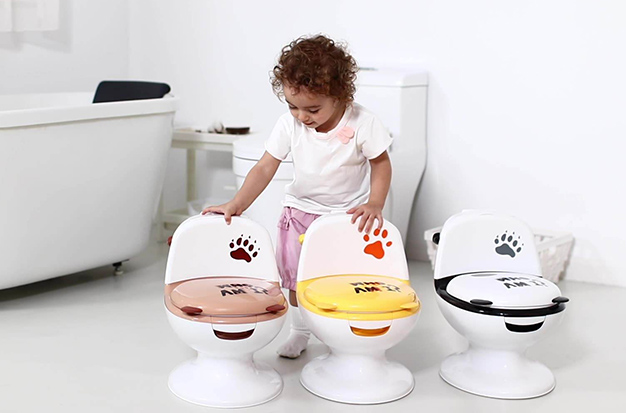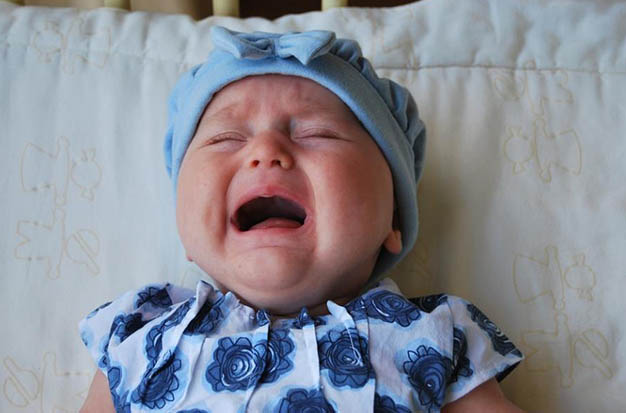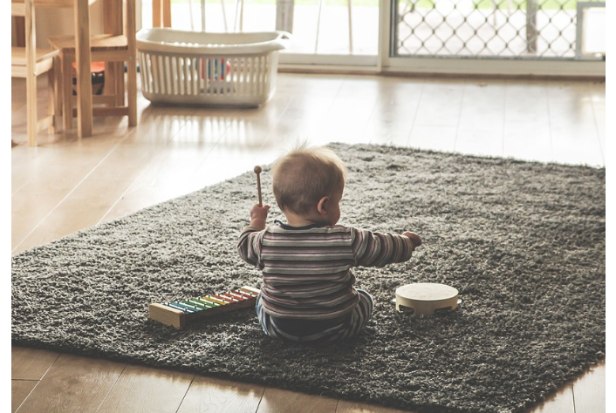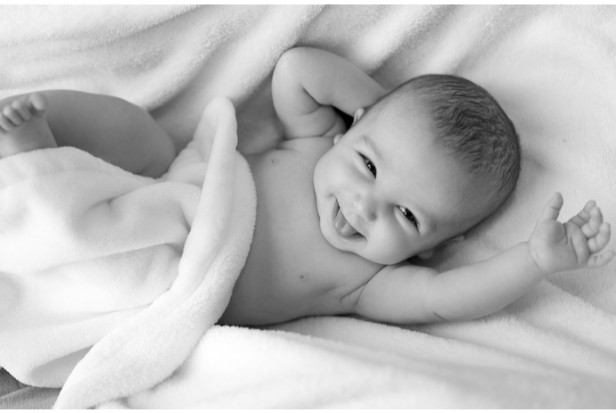Are you worried that you started potty training but your child is not ready for this?
Your toddler hasn’t made a single significant trip to the potty in a week despite it being out since it was last used?
We start the potty training process excited to finally get rid of the diapers and convinced that if we can’t get them using the toilet by the age of three, we’re doing something wrong as parents.
The fact is, though, that every single child is unique. A few days would be needed to complete this task if you waited until your child was actually prepared, as opposed to three months of slogging it out while your carpet becomes spotted with wee and poop patches.
There are a number of telltale signs that your child is simply not ready to start potty training. You really shouldn’t push yourself to reach this milestone, not least because doing so will put undue stress on you.
Potty Training Readiness: What Is It?
Every child is unique when it comes to readiness for potty training.
While some toddlers may be prepared as early as 18 months, others might not be until they are 3 or 4 years old.
As you can see, there is a wide range of ages at which children learn to use the toilet.
There are a few key signs that can indicate whether your child is ready to start potty training, including
- expressing an interest in using the toilet
- staying dry for longer periods of time
- understanding and following simple instructions
- having all physical skills needed
The best course of action is to follow your child’s lead if you believe they are ready to start using the potty.
You can assist your child in successfully transitioning to using the toilet if you have some patience and encouragement.

7 Signs Your Child Is Not Ready For Potty Training
The following list is for you if you’ve had trouble potty training your child and have even wondered if you should give up or take a break.
I’ve listed six indicators that your child isn’t ready for potty training below. It might be worthwhile to take a step back or modify your strategy if you can find these signs in your home, especially if there are a lot of them.
Because at the end of the day, potty training should feel easy. Yes, it is simple; if something doesn’t seem to “click,” it probably isn’t as difficult as it needs to be.
Given how unpredictable potty training can be for children, consider these indications that she might not be ready just yet:
Your Child Is Wet All The Time
The capacity to be conscious of and in control of bowel movements is a milestone that your child must achieve. When you and I need to use the restroom, we can wait until we are close to one. Additionally, we have a propensity to leave at set intervals or following particular events.
A child who isn’t ready to use the toilet will, however, just be wet or dirty all the time. She doesn’t have a regular schedule for going to the bathroom and her urination and defecation are inconsistent. In fact, she seems to go whenever and wherever.
She needs to go longer between changes before potty training will be successful; an hour or two is a good starting point. And if she’s dry after a nap, that’s a great indication that she can wait to use the restroom until she’s on the toilet.
Your Child Can’t Undress Himself
Your child must be capable of completely undressing himself, especially his bottom half, in order to use the potty. He might still have trouble unbuttoning his jeans, but he ought to be able to put on and take off his elastic-cuffed, loose-fitting clothes.
You might want to hold off on beginning potty training if this is still a problem.
Your Child Doesn’t Mind Dirty Diapers
Whether their diapers are loaded or dry, babies and young toddlers don’t seem to give a damn about them. Although babies may cry due to a dirty diaper, this is more likely due to a rash than it is to indicate that they have urinated. Additionally, toddlers don’t seem to care as much about a full diaper as they do about getting up and playing.
But eventually, they’ll start to pay closer attention to their diapers, particularly when they’re soiled. They could tug at it, try to yank it off, or even tell you it hurts.
Your child won’t be motivated to use the potty if they don’t know about it, though.
Your Child Has No Awareness Or Interest In Using The Potty
Not all children need to be overly enthusiastic about using the potty to indicate that they are prepared for potty training. Even so, they ought to be at least somewhat aware of or curious about using the restroom.
For instance, your child should be able to tell you what she’s doing and understand what “pee” and “poop” mean. She tells you that she has to urinate or that she was just done urinating. She should be familiar with how the toilet functions and will try it.
She might not be ready right now if she won’t use the toilet or doesn’t seem to want to.
Your Child Does Not Have The Physical Skills
Waiting until your child is physically prepared is crucial when it comes to toilet training.
This implies that they must be able to stand and sit by themselves, without help.
They should also be able to communicate when they need to go to the bathroom.
Your child is not prepared for toilet training if they don’t yet possess these abilities.
It can be aggravating and overwhelming for both of you to make them use the restroom before they are prepared.
Instead, focus on teaching them the necessary skills and wait until they are physically and emotionally ready to start toilet training.
Your Child Won’t Sit On The Potty
Getting your child to even sit on the potty can be a challenge. She might not be ready if you discover that she can’t sit on the potty for at least three to five minutes while dressed.
Being willing to sit for a long time on the toilet is a necessary component of toilet training. She was prepared to give it a shot for as long as it might take for something to possibly happen, even if nothing came of it.
Sitting her on the toilet while she engages in another activity to “distract” herself is one tactic that may be useful. You could read her a book, let her play with a toy, or even let her use a tablet to watch television while she sits.
Your Child Resists The Potty
Resistance to potty training is undoubtedly one of the most obvious signs that your child is not yet ready.
She may sob at the thought of going three days without wearing underwear, or she may feel nervous or afraid when using the restroom. You might fight over who gets to poop in the pull-up or engage in daily power struggles. Although she expresses a clear dislike for using the restroom, she does care about it.
She might even be physically ready to use the potty, but because this has become so contentious between you two, sees it as a loss of control. She might become so defensive when discussing potty training that she won’t even try it.
It’s best in these situations to let it go, even if it’s just for a week at a time. Don’t even think about bringing up potty training again, even if you have to give yourself self-talks to keep from arguing with her. Then, after you’ve taken a “break,” bring it up then, or wait for her to take the initiative.
How Long Does Potty Training Typically Take For A Toddler?
Some toddlers pick up potty training almost right away, while others need a little more time. Whether he starts later or doesn’t grasp it right away, your child isn’t behind in his development. Some children begin learning around the age of 2, while others begin learning well into their third year. Nighttime potty training can take much longer, and the process can take weeks or even months. By the age of five to seven, the majority of kids should sleep without accidents. So arm yourself with mattress covers and disposable nighttime training pants.
One of the more upsetting developmental phases for some parents is potty training. It can take longer for some toddlers than for others, and it can get messy in the interim. Be patient, though, and don’t worry. Your child will eventually master the skill, and before you know it, you won’t need to carry a diaper bag around.
Tips For Starting Potty Training If Your Toddler Is Ready
- Be prepared to successfully potty train. Simply put, obstructions like overalls and challenging buttons are unnecessary. Establish a routine of dressing your child in easy-to-hike-up dresses or pants for potty training.
- Pick the right potty. Some toddlers favor their own potty, while others favor a potty seat. Choose the course of action that is best for your child. Look for a stable fit when purchasing a toilet seat because a shaky seat can cause a child to return to diapers for several weeks.
- Switch to pull-ups. Pull-ups are a great intermediate stage because they let you begin training without worrying about an accident in an awkward location. Additionally, they can still be ripped off rather than being pulled to his feet, even though they pull up like underpants. The drawback is that they absorb moisture like diapers do so that your toddler won’t be bothered by being wet, which can slow down the process. Consequently, switch to washable training pants once you start experiencing some success.
- Watch for the signs. You may see them earlier than your toddler at this age. If you see that your child is straining or fidgeting, go to the bathroom and give it a try.
- Let him bare his bottom. If he isn’t wearing a pull-up or training pants, he may be more aware of his bodily signals, making it simpler to hurriedly take him to the restroom when you notice the signs.
- Be patient. While having to mop up a spill on the bathroom floor can be annoying, remember that your child is still learning. All throughout the day, gently remind your child to use the restroom, and take them there yourself. But don’t yell, nag, or punish. In fact, it might make him feel less confident and slow the process down.
- Don’t deny drinks. It’s never a good idea to refuse drinks. It’s ineffective and unfair. To have more chances for success, it’s actually more beneficial to step up the liquids.
- Prevent a fight in the restroom. It is best to avoid a fight if you are met with utter resistance. If your child isn’t yet ready to begin training, stick with diapers for a little while longer and bring up the topic again in a few weeks.
- Bring on the praise. When you succeed, tell him how happy you are and give him rewards like stickers for each successful pee and two for each successful poop.
Conclusion
All children have different levels of readiness for potty training, which means there is no such thing as an “advanced” level. Each of us is built differently.
For instance, your child might not be ready yet if she doesn’t care about having dirty diapers or doesn’t stay dry for extended periods of time. She might not be able to pull her pants up and down or she might not let you know that she needs to go potty or urinate (or that she has already).
She not only declines to use the restroom, but she actively resists doing so. This may be a result of her being on the defensive due to power struggles, fear, or anxiety.
Be reassured that it’s not the end of the world if she’s not ready for potty training. I promise that she won’t be in diapers forever.
When something doesn’t go your way, you should sometimes back down and stop making a big deal out of it. And perhaps the most telltale sign that you’re on the right track is that potty training actually feels easy once and for all.



